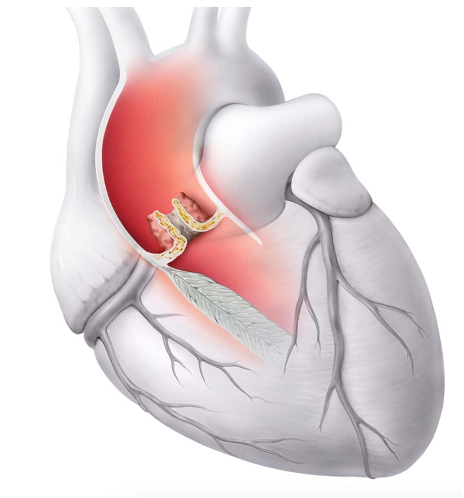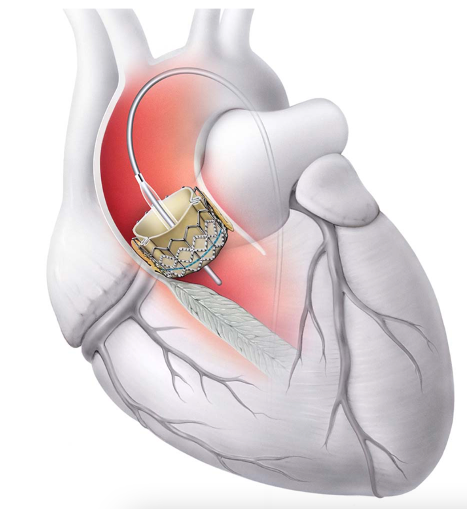What is the Transcatheter Aortic Prosthesis Implant (TAVI)
TAVI (Transcatheter Aortic Valve Implantation), also known as TAVR (Transcatheter Aortic Valve Replacement), is a minimally invasive procedure used to treat aortic stenosis in patients who are not candidates for open-heart valve surgery, who have a high surgical risk for an open procedure, or even by patient decision and consensus with the medical team; decide to perform this surgical option.
During the procedure, a small incision is made in the patient's groin or chest and a catheter is inserted into the femoral artery or subclavian artery. The catheter is guided into the heart, and the new heart valve is implanted through the catheter. The new biomaterial valve replaces the compromised aortic valve, allowing blood to flow normally through the heart.
TAVI is usually performed on patients who are at high surgical risk or who cannot have open-heart valve surgery due to other medical conditions. The procedure is less invasive and generally involves a shorter recovery time than traditional surgery. The recommendation for this type of technique must be carefully evaluated by the entire medical-surgical team.

The percutaneous valves that we currently have, guarantee similar results to those used in open surgery and the number of percutaneous valves in comparison with open surgery is increasing every day.
Management guidelines for patients with aortic stenosis have progressively lowered the recommended age for TAVI implantation, mainly due to improvements in materials and technology used in these new valves.
Patients undergoing the TAVI procedure must follow medical guidelines to ensure a successful recovery. It is important to eat a healthy diet, exercise regularly, and take the medications prescribed by your doctor to control your blood pressure and reduce the risk of complications. It's also important to see your doctor regularly to monitor your heart health and make sure your new valve is working properly.

In summary, TAVI is a minimally invasive treatment option for patients who have aortic stenosis and are not candidates for open-heart valve surgery. TAVI also represents that exponentially growing therapeutic option, which allows patients who wish not to be exposed to open surgery to have this treatment option. The procedure is generally successful and can help patients improve their quality of life.



